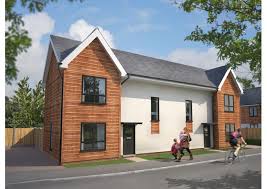District Councils push for zero carbon homes
On 08/02/2020 At 1:00 am
Category : Missed a ThameNews story?, More News, Thame news
Responses : No Comments
BOTH South Oxfordshire and the Vale District Councils, have called for zero carbon homes in a joint respose to the Government’s Future Homes Standard Consultation which ended yesterday.

In their response, the two councils have agreed with the move to produce clearer standards and guidance in line with the recommendations of the Hackitt Review, and that restructuring the guidance so that it is clearer about what is expected of the home builders and developers in complying with the requirements would be a positive step.
However, although supportive of the intention of the targets being proposed, both Councils felt strongly that the Government should be ‘far more ambitious’ with their targets and timescales in the move towards constructing zero carbon houses, and in their expectations of local authorities, housing developers and homeowners.
The standards proposed in the consultation document however, are lower than those for London, setting out carbon reduction targets 25% lower than those detailed in the 2016 London plan – a fact pointed out to the government in a recent letter to the housing Minister, from the Mayor or London, Sadiq Khan.
The Future Homes Standard is currently under consultation and is due to come into effect in the latter half of 2020, covering England only. In its current form, it includes a goal to reduce the carbon intensity of new builds by 75% by 2025, which will be delivered through fresh mandates for housebuilders on triple glazing, low-carbon heating systems, onsite renewable generation and energy-efficient building fabrics. The 75% target is down from an initial proposal of 80%.
Last year both councils declared a Climate Change Emergency. At South Oxfordshire District Council, they have set a date of 2030 by which they expect to reach carbon emissions of net zero or near to net zero. At Vale of White Horse District Council, they are aiming for a 75% reduction in carbon emissions in the district by 2030.
To read the whole statement from the two councils, click HERE

